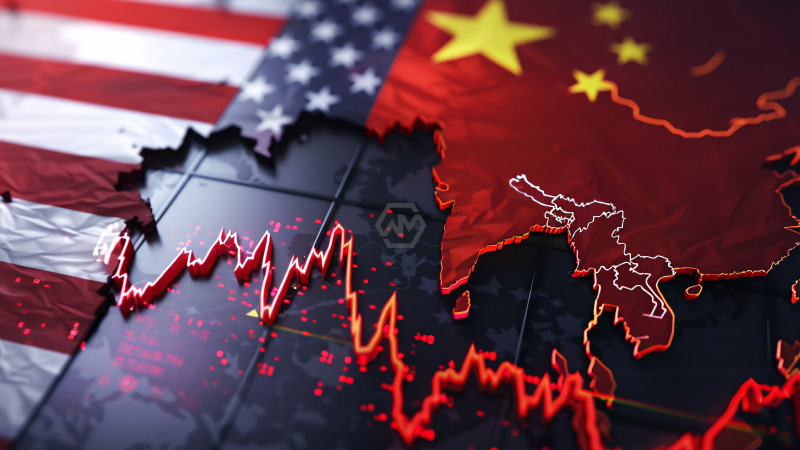- Vietnam faces up to 46% tariffs from the U.S., threatening its top export sectors.
- Global markets plunge amid fears of a widening recession.
- Trump remains firm, calling tariffs a “beautiful thing,” as world leaders urge negotiation.
Global markets are in turmoil after China retaliated against U.S. tariffs with steep countermeasures of its own. Stock exchanges across Asia suffered massive losses, with investors shifting to safer assets.
Vietnam, which relies heavily on exports to the U.S., is now facing one of the steepest tariff hikes—up to 46%. This threatens its key industries like electronics, textiles, and furniture.
Tariff Shock: Vietnam’s Export Engine Faces Major Disruption
President Trump’s sweeping tariff measures have reshaped global trade dynamics. They introduce a baseline 10% tariff on all countries, with additional penalties for key exporters. Vietnam, whose economic model is largely export-driven, finds itself particularly exposed. Over 30% of its shipments are bound for U.S. shores.
The most impacted sectors include garments, electronics, seafood, and furniture—all labor-intensive industries. These sectors are core to Vietnam’s growth and job creation. Manufacturers face a painful choice: absorb the cost, lose competitiveness, or shift operations elsewhere. For many, the latter isn’t feasible without significant disruption.
Beyond direct exporters, the mood among Vietnamese businesses is one of alarm. The uncertainty is choking investment confidence, even in sectors that don’t export to the U.S. This is due to interlinked regional supply chains. Moreover, smaller manufacturers fear layoffs, closures, or delayed expansion.
While the near-term outlook is tense, Vietnam is not without options. Strengthening regional trade agreements like the CPTPP and EU-Vietnam FTA could reduce U.S. dependence. Meanwhile, long-term reforms and supply chain diversification may help the country build economic resilience in the face of future global shocks.
Vietnam’s immediate future may look uncertain under Trump’s aggressive trade policy. However, with smart diplomacy and strategic pivots, it can emerge stronger and more self-reliant.
“The world as we knew it has gone.” – UK Prime Minister Keir Starmer



